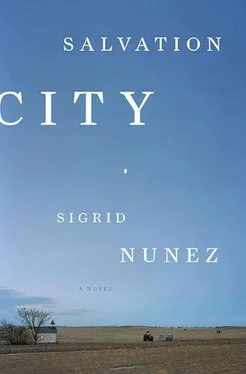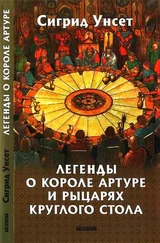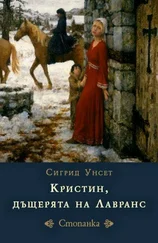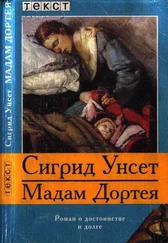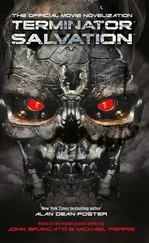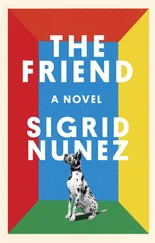The students, who came from all over the country, were shown in an auditorium at some kind of assembly. “You are looking at America’s next generation of great leaders and discoverers and Nobel Prize winners,” the TV reporter said.
Kids in classrooms or in the cafeteria or out on the school lawn discussed science and politics and even sports in a way Cole had never heard anyone his age talk before. Over his head. And he who had always hated school was smitten with envy. The reporter and all the other adults who appeared on the program were obviously in awe of these kids. The parents of one boy told the reporter that the school had saved their son’s life. He’d been in a different school first, an ordinary school with ordinary students and teachers, and despite his extraordinary aptitude (among all those brainiacs, this kid might have been the brainiest of all), he had not done well. According to his parents, there’d been two reasons for this: their son had been bullied, and he’d been bored.
When Cole heard this he became flustered; he became enraged. He, too, had been bullied and bored. Forgetting all about the ferocious competition to get into the school, he failed to see why he hadn’t been plucked out and sent to Washington to study with genius classmates and teachers who never bored them. Tears of self-pity stung his eyes. He bet none of those kids was an orphan. (He was wrong.) And what would it be like if he ever met any of them? He would not be like them. He would not know all the things they’d been taught; he would not be their equal. And how would they treat him? For sure, they would look down on him. They wouldn’t bully him—they were above that, of course—but they would not befriend him, either. They would ignore him. Maybe even feel sorry for him. The one thing worse than bullying.
Cole had watched the program all the way to the end. He had turned the TV off then and sat for a long time, his soul in a stew. He felt cheated and humiliated and confused. Deeply, he believed he was more like those gifted kids than unlike them. His pride insisted on it: the future great leaders and discoverers and Nobel Prize winners—he belonged with them. A huge misunderstanding had been allowed to take place. Why hadn’t anyone seen that just because he hated school didn’t mean he was lazy and dumb? It was unfair; it was all a mistake. Somehow it must be corrected. If not, he would grow up to be something worse than an underachiever. He would grow up stupid, an ignoramus. He would have to hide himself away from the world or die of shame.
These were his thoughts, but they were not thoughts he would have been comfortable revealing to Clem. Nowhere in the program about the prestigious school had there been any mention of God or church or any kind of religious instruction. Clem would have no truck with such a place. He would have called it a school for fools.
But there were other things Cole could share with Clem, and to which Clem could speak better than most.
About that crowd gathering at the church—
“What do you think is going to happen next?” asked Cole.
Pause.
“I think the more time passes, the more folks’ll calm down.”
Cole’s heart beat faster. “So you’re saying you don’t believe it’s the rapture.”
Clem took even longer to answer this time. “I believe I know an elopement when I see one.”
Cole could have kissed him. But his spirits sank when it became clear that Clem was no more concerned about Starlyn than PW was.
“Far as I’m concerned this is Mason’s responsibility,” said Clem. “He’s done a bad thing, I admit, but it’s not like it can’t be fixed.”
“Well, I think he’s way evil,” said Cole hotly.
Clem looked taken aback. “Evil? Mason?” He gazed sadly at Cole and shook his head. “That’s not right, Cole.”
“Then how could he pull a dirty trick like that?” Cole’s voice cracked, but he was too angry to be embarrassed. He waited impatiently for Clem to respond.
“You know how it is. It’s like, some people, they get religion and that’s that. But other people, they get religion and after a while they lose it. Then they get it back, but then maybe they lose it again. It happens all the time, like falling off the wagon. And it’s not just the weaklings and the hell-raisers who have to get born again and again. Lucky for us, our Lord is the Lord of many chances. If you fall—”
“But what about Starlyn?”
“Girls have always been hard for me to figure.” The way Clem said this suggested any attempt at figuring them would be a waste of time. “I don’t believe Mason would ever hurt her, though. I think he loves her. I guess love can make a dude do crazy things.”
“Have you ever had a girlfriend, Clem?”
“Nope. You?”
“Not exactly,” said Cole. He was thinking of Jade Korsky. But though it was he who’d steered them in this direction, he had no real desire to go there. “Where do you think they are now? Do you think they’ll ever come back?”
“I don’t know. But maybe if they do come back, there’ll be three of them.”
This outrageous thought had not yet occurred to Cole. He stood up and began clearing his dishes, making a lot of noise, as if the outrageous thought were a living creature that could be scared off this way.
Clem got up from the table, too. “Hey, I got an idea,” he said. “Why don’t I cook up some more French toast? Then we can keep it warm for when Tracy and PW get up.”
He was already at the counter, cracking an egg into the bowl.
Cole was too agitated to sit down again. He opened the dishwasher and began unloading the clean dishes from the day before. The sun was slanting through the kitchen window now and birds were singing in loud, ecstatic bursts. Cole had heard it was supposed to turn hot again.
Cole didn’t want to be angry with Clem. He wished that he could make him understand. He looked at Clem’s tall pear-shaped back and found himself wondering what his mother would have thought of him. Lately this had been happening a lot: he’d be thinking about one thing or another and suddenly he’d start wondering what his mother or father would’ve thought about it. It was part of the spell that had begun to lift with Addy’s arrival. He could remember his parents without horror, without feeling the need—the pain being too much for him—to shut them out. Now there were times when he wanted nothing more than to recall his old life. He would stare into the past and try to reconstruct things: The rooms of all the houses he had lived in. The last time he had seen his grandparents. The names and faces of every teacher and classmate he’d had since kindergarten.
It was like a game—it could be fun—but it felt like something more than just a game as well.
He even tried to recall bad things, like his parents fighting. Some T-shirt his dad had worn and that his mom said was juvenile . . . a slogan that rhymed . . .
Often as not he’d have to give up, frustrated. But there were times when he wanted to shout hurray.
Human Race, Get Out of My Face .
Of course! How could he have forgotten!
His mother would have liked Clem, he decided. Except for his religion, she probably would have liked him a lot.
“Clem,” he said, laying the last spoon away in the drawer. “Are you saying it’s not evil for Mason to run off and leave his mother all alone like that? I mean, she’s so sick she can hardly get out of bed.”
Clem raised his voice above the sizzling frying pan. “He probably told himself she’d be okay. He probably figured he could count on us. Nobody’s ever on their own in Salvation City. Like, you weren’t here, so you wouldn’t know, but during the flu it wasn’t like other places. There wasn’t any fighting over food or medicine, or stealing from sick or dead people—none of that stuff. And Mason knows—Hey, sounds like we woke someone up.”
Читать дальше
